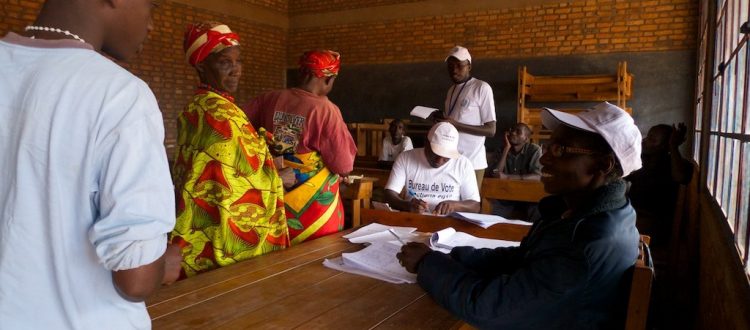Burundi withdraws from the International Criminal Court as violence continues
18 months into a violent political crisis in Burundi, the government has announced that it will withdraw from the International Criminal Court – an unprecedented step that has many people worried.
| Suggested Reading | Conflict Background | GCCT |
By Kevin McCann
Burundi is set to become the first country to withdraw from the International Criminal Court (ICC). The unprecedented step comes after Burundian lawmakers recently voted 94 for and 2 against a bill proposing the withdrawal, with 14 abstentions. The Burundian President, Pierre Nkurunziza, has now signed the decree turning the proposal into law, six months after the ICC opened a preliminary investigation into worsening violence in Burundi.
In a similar development, the Burundian government has also suspended collaboration with the UN Office of the High Commissioner for Human rights. In doing so, the government described the basis for the report of the recent UN Independent Investigation into the crisis in Burundi as false, and declared its three authors as persona non grata.
These events have taken place in the context of apparently increasing public opposition to the UN’s work in Burundi. On 8 October, a crowd of more than 5,000 people demonstrated outside the offices of the UN High Commissioner in the capital, Bujumbura. They chanted slogans against the UN and called for the closure of the Office. Similar protests have been reported around the country, but civil society activists are dismayed, saying that the UN commission of inquiry – and the ICC – are the only options to shed light on the violence of the last 18 months.
Continuing unrest
Meanwhile, that violence continues. Let there be no doubt: this is a very serious situation indeed. At least a thousand people have died in Burundi since April 2015, when Burundians first took to the streets to protest against the decision of Pierre Nkurunziza to run for a third term in power.
As Peace Direct’s Local Peacebuilding Experts have discussed, Nkurunziza is not the first President in Africa, and is unlikely to be the last, to try and outstay his welcome. But the situation has become worse more quickly than people feared. In addition to those killed, more than 300,000 people have fled Burundi as refugees, according to the latest UN figures. This is an enormous number for a country of 10 million people. Yet the same report also notes the tiny amount of funding the UN has received in response to its appeal for help: $4.7 million, or just three per cent of what it has asked for.
Those fleeing are leaving behind an appalling situation which has seen unrestrained political violence, including arbitrary arrest, kidnapping, torture and execution. There are almost no independent media outlets left in the country, and civil society organisations, trades unions and the political opposition operate in fear for their lives.
Where next?
The Burundian government said that an ICC examination of events in the country would encourage violence from “potentially negative forces and their acolytes.” But activists that Peace Direct works with say that many Burundians would cooperate with any court able to conduct a “credible and independent investigation,” with national courts severely compromised in the current political context.
“The ICC opening a case on the many cases of murder, imprisonment, torture, enforced disappearances, rape and other forms of sexual violence had brought much hope,” the local analysts said. Burundians thought that: “The perpetrators would be prevented from getting away from international justice.”
Although the Court is able to continue investigating while the formal procedure to leave is enacted, which takes 12 months, Burundians are fearing the worst.
“That sense of hope will be disappointed if the international community does not act quickly to protect victims and stop the rampant impunity,” said the analysts. They believe that the Burundian regime is hiding behind the withdrawal to try and protect officials involved in crimes committed in the last 18 months.
Responding to the decision of the Burundian government to leave, the President of the assembly of states who make up the Court, Sidiki Kaba, agreed. “The withdrawal from the Statute by a State Party would represent a setback in the fight against impunity and the efforts towards the objective of universality,” he said.
And three days later, there was another setback for the Court: the unprecedented decision by Burundi had become a precedent, with reports that South Africa was going to follow its lead and also withdraw from the ICC. The situation continues.
Kevin McCann is Peace Direct’s Research and Engagement Officer. His work includes helping to run the Insight on Conflict website, developing new publications, and supporting Peace Direct’s conflict early warning projects. He has an MA in International Security.
This article was originally published by Insight on Conflict and is available by clicking here. The views expressed in this article do not necessarily reflect the views of TransConflict.



















